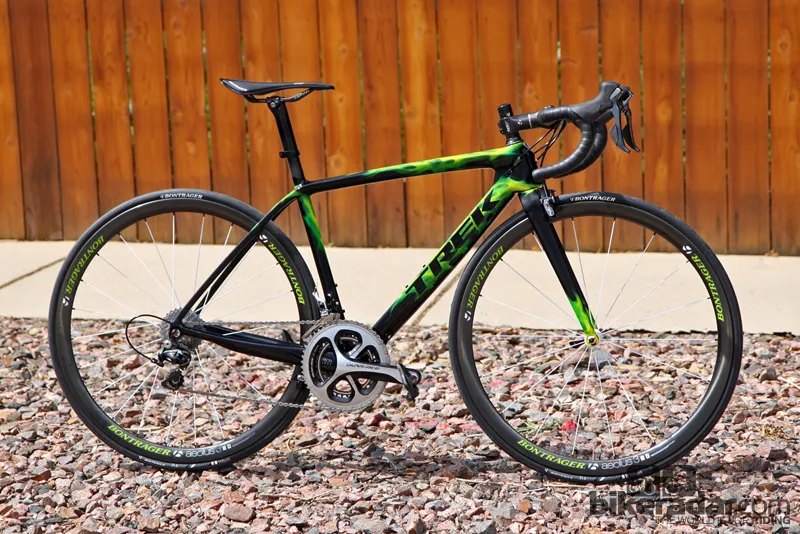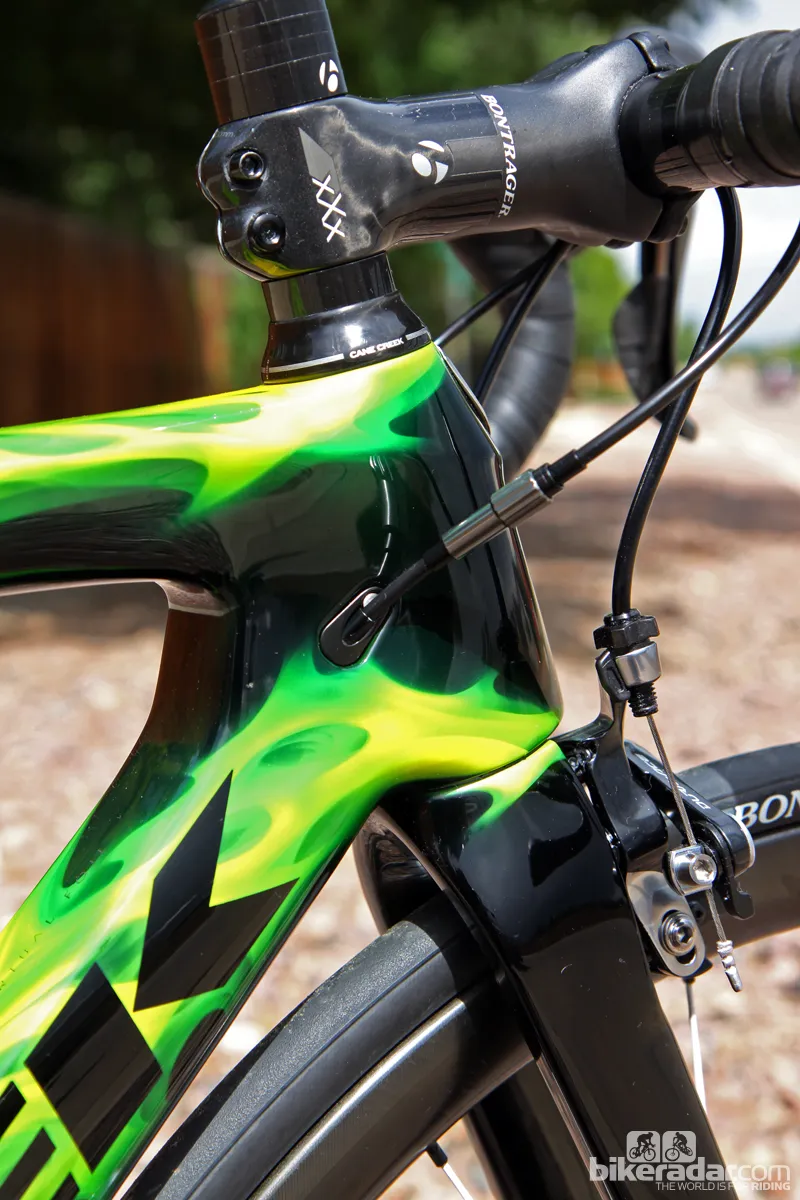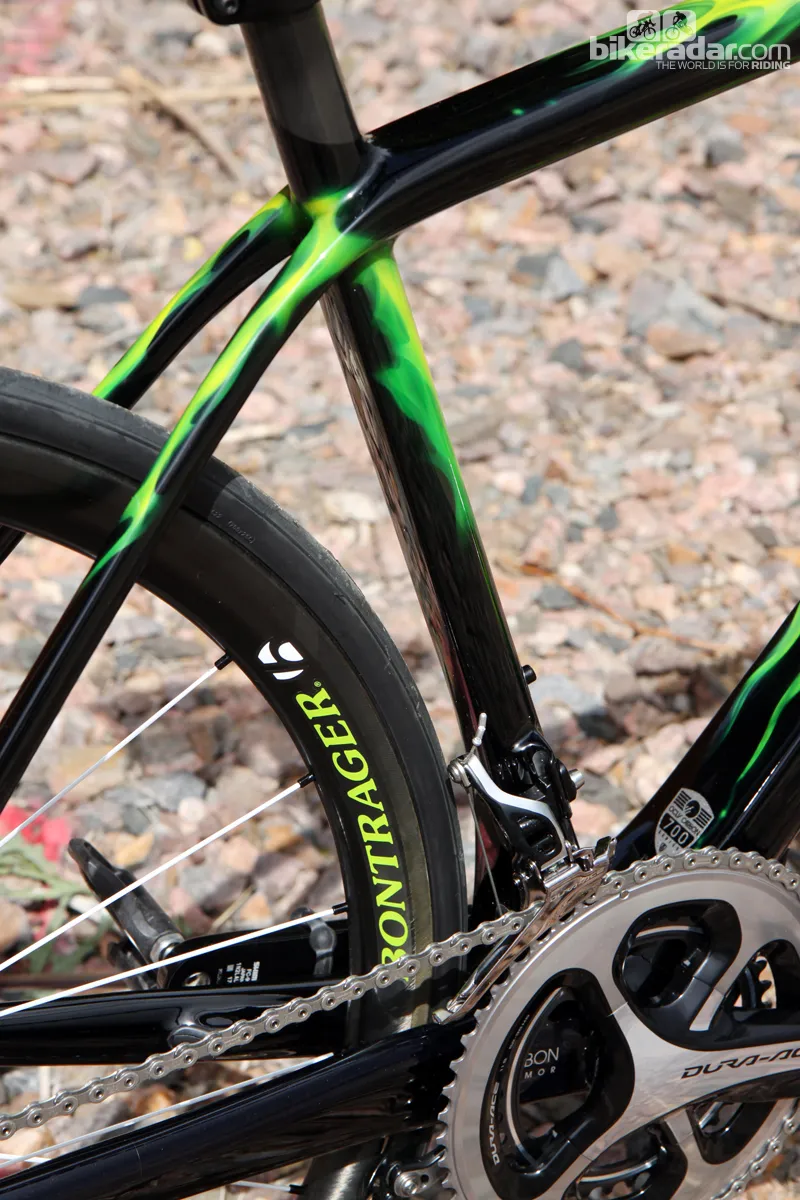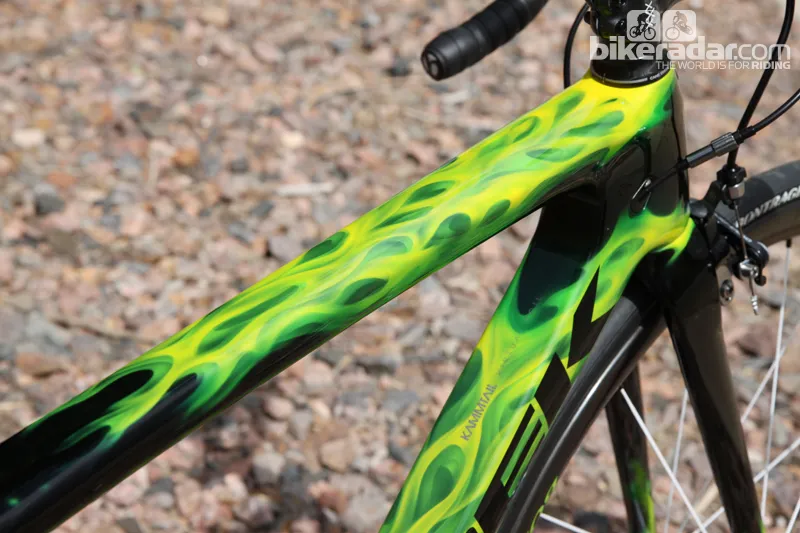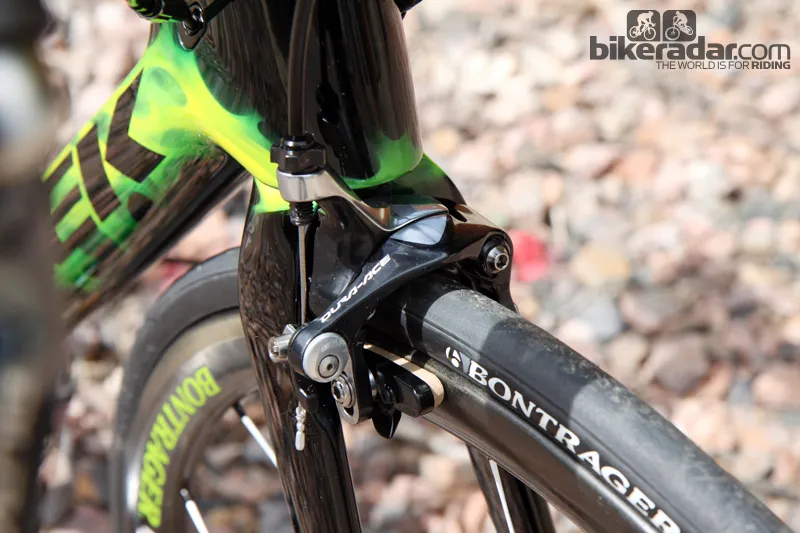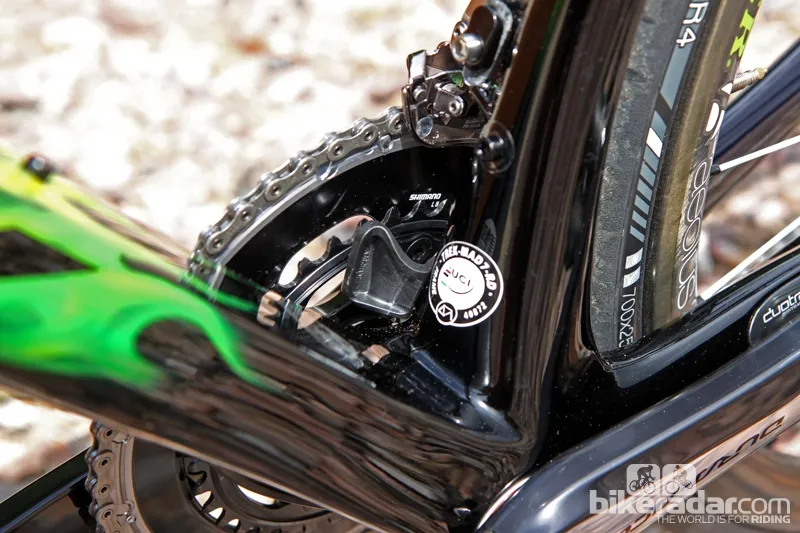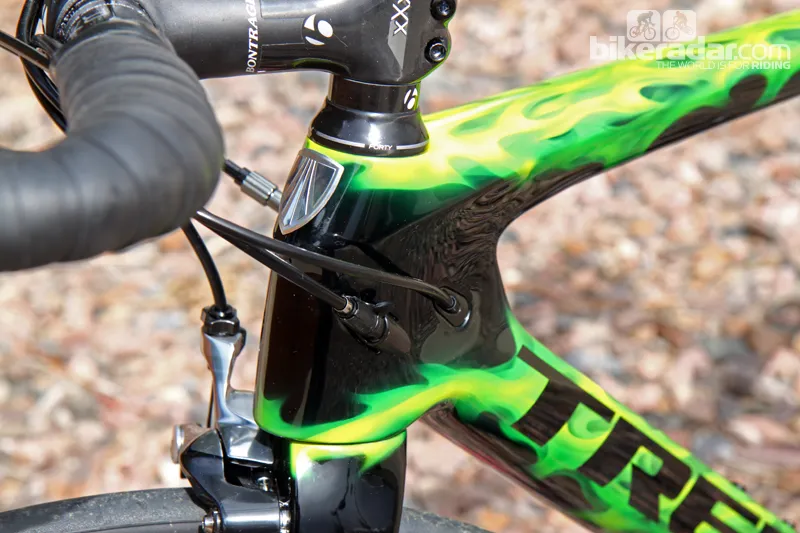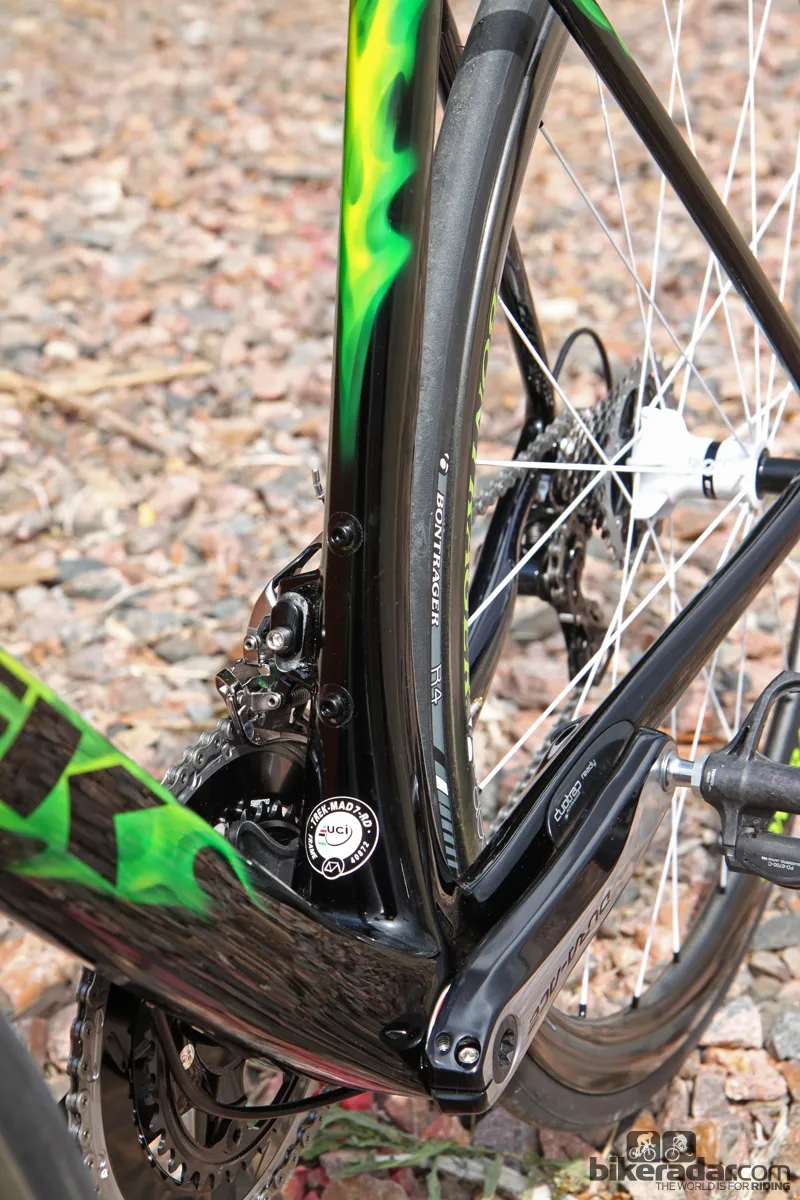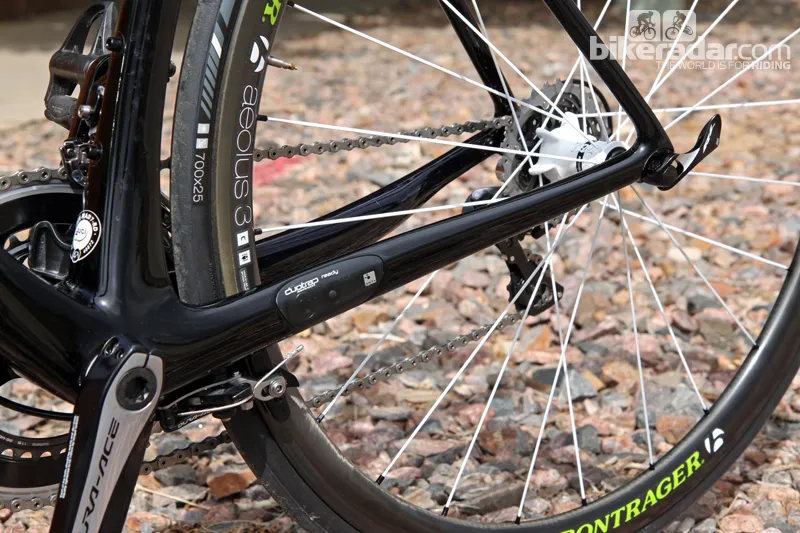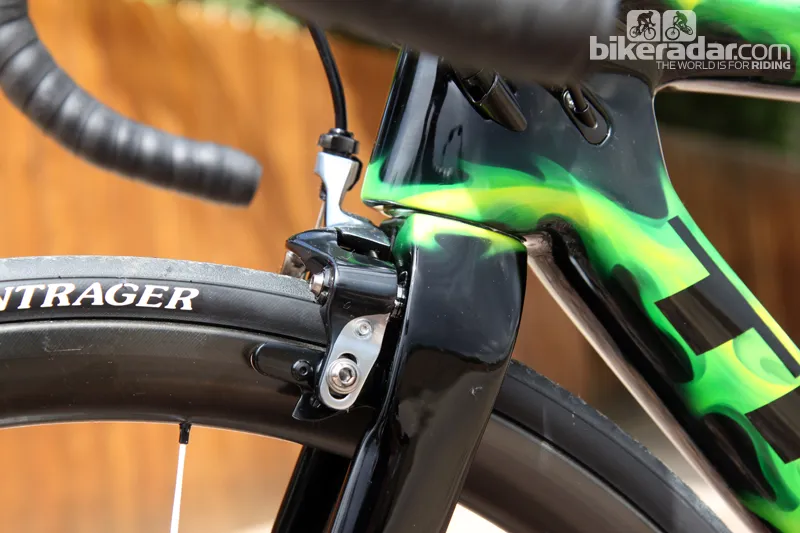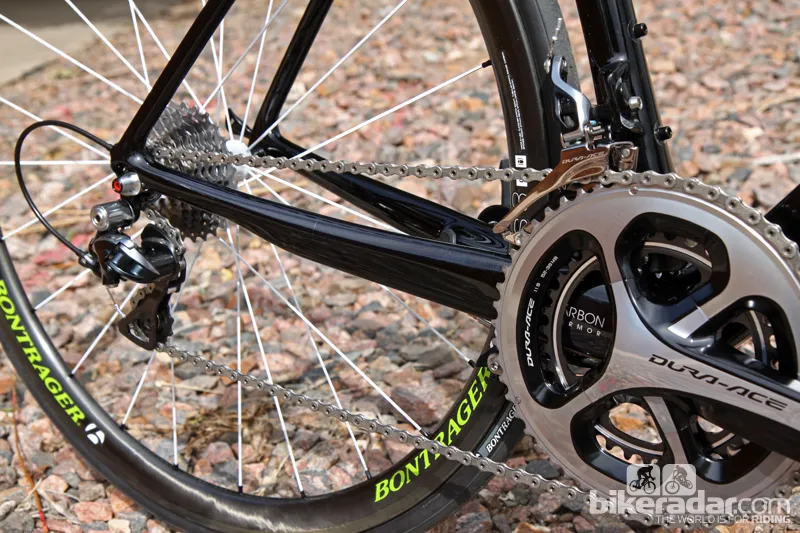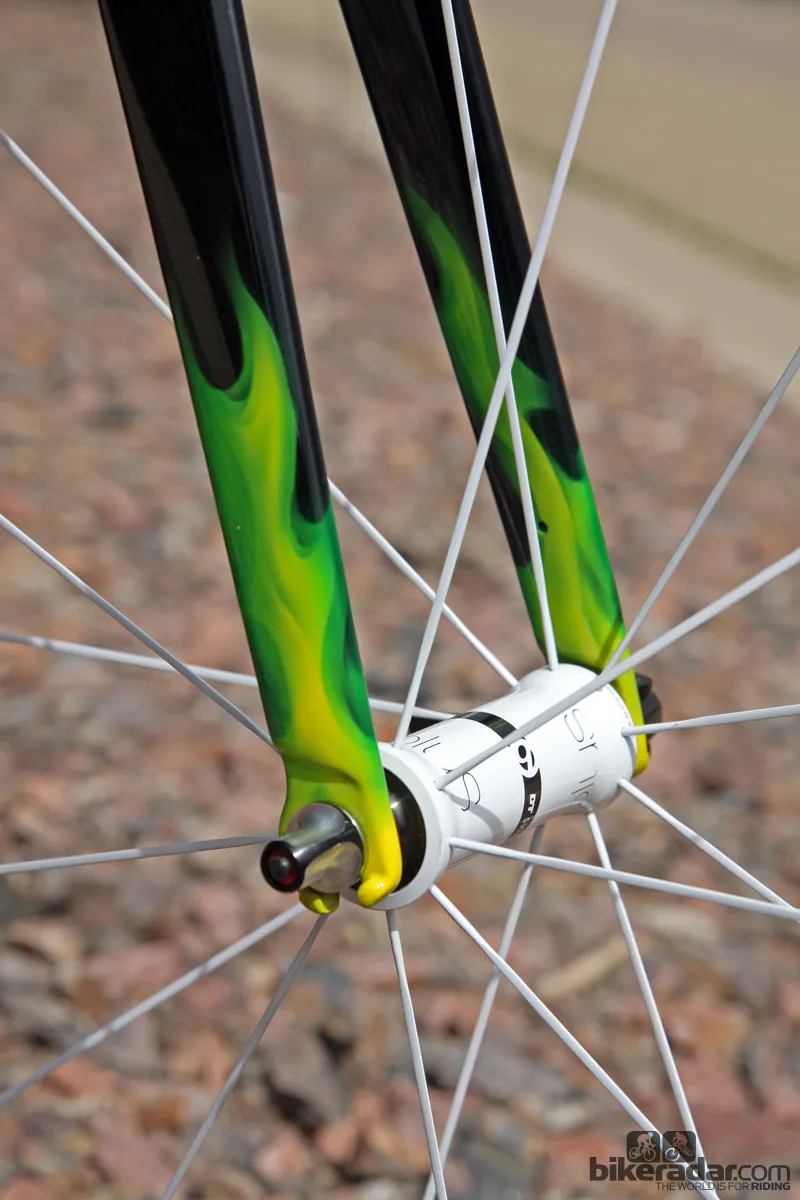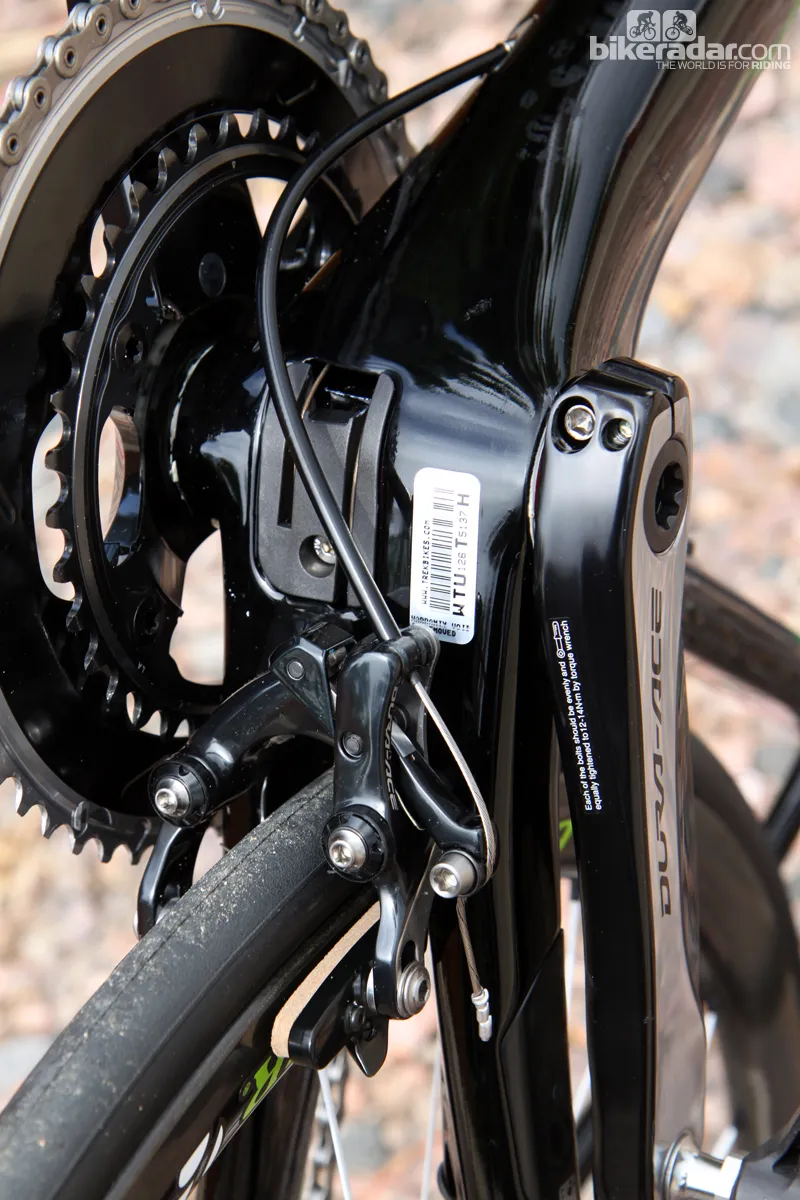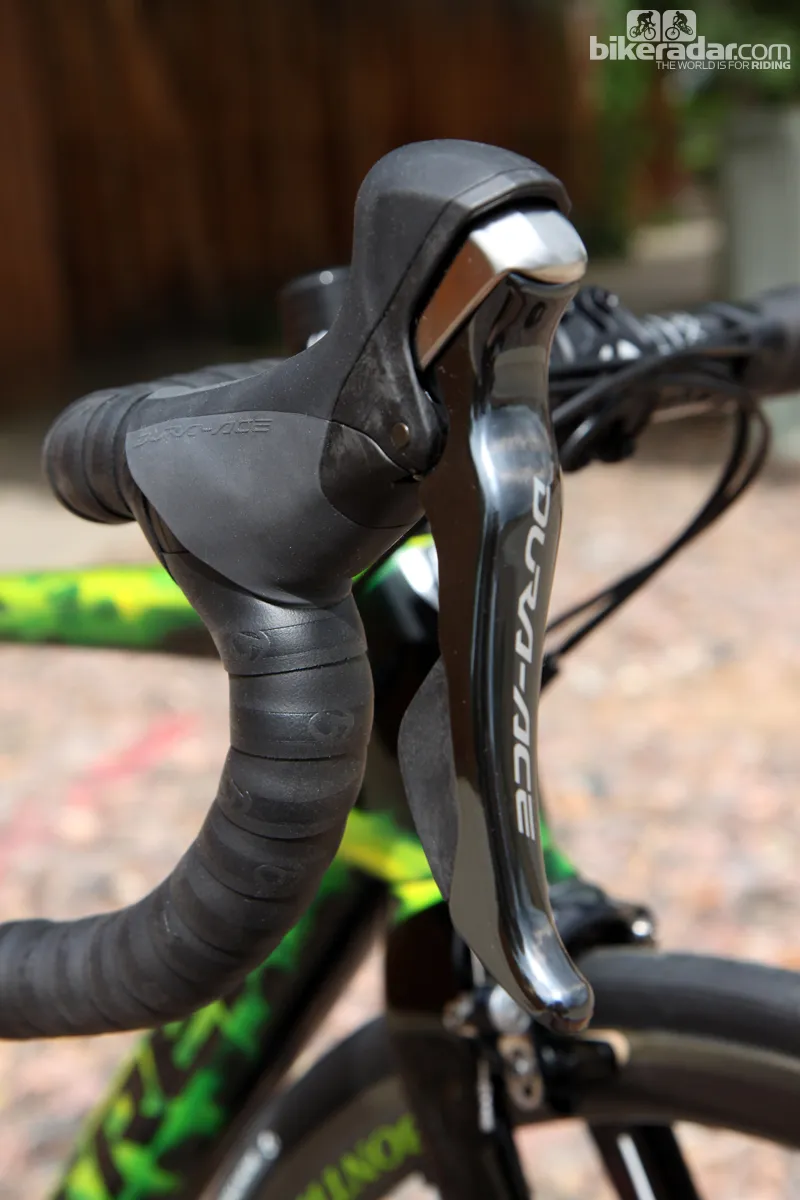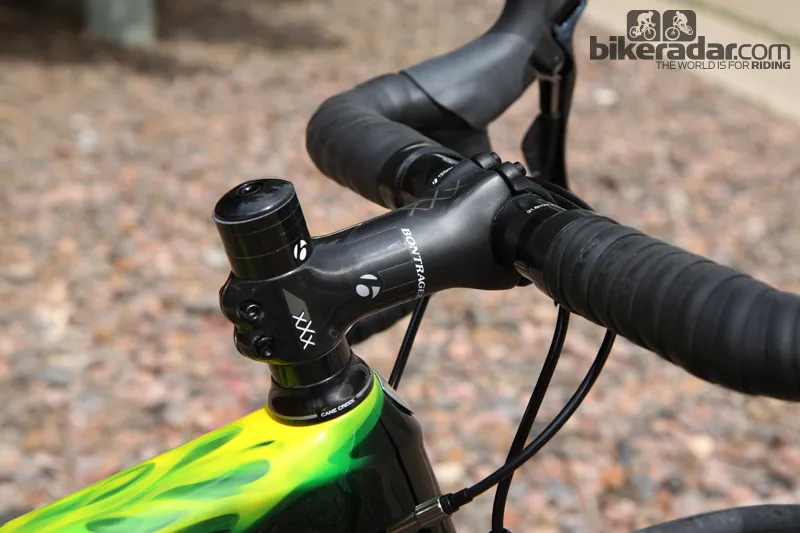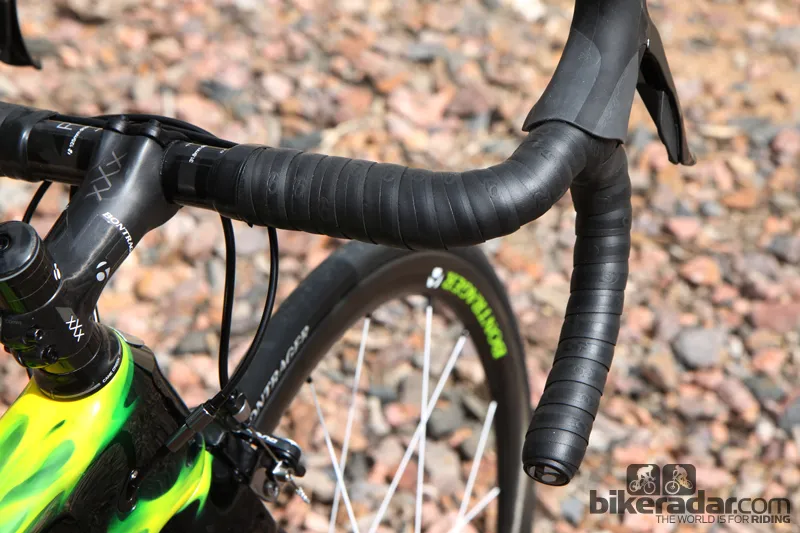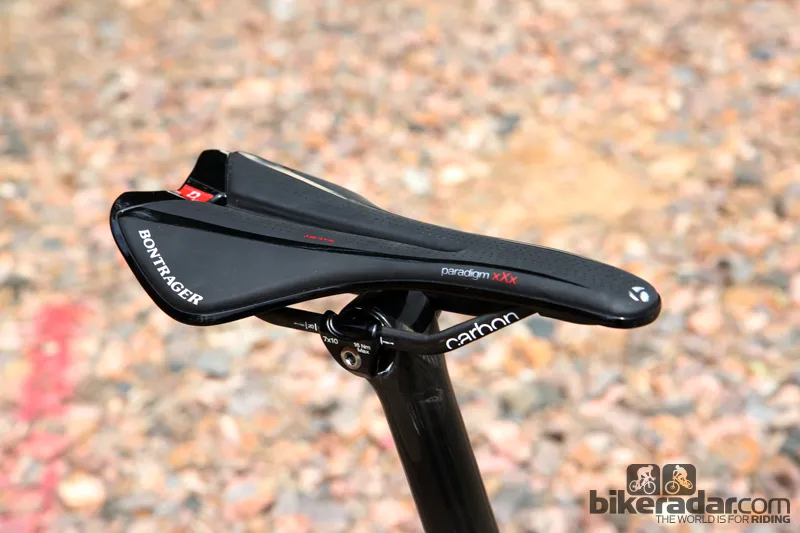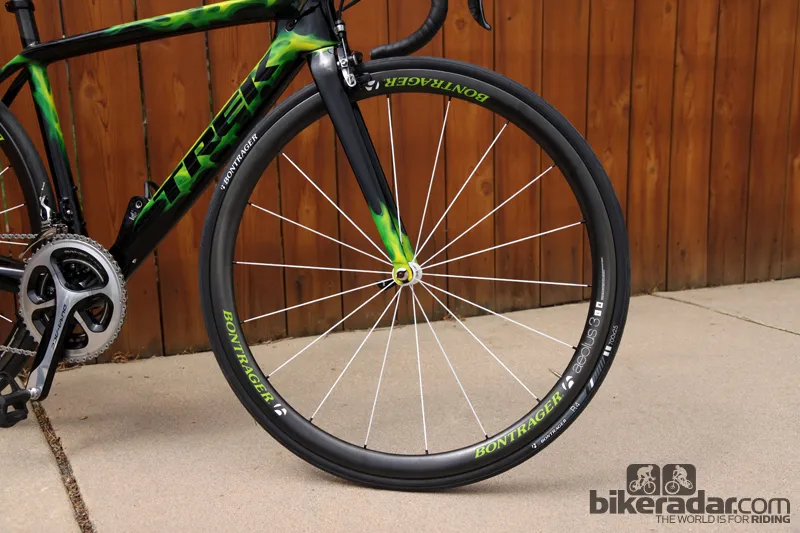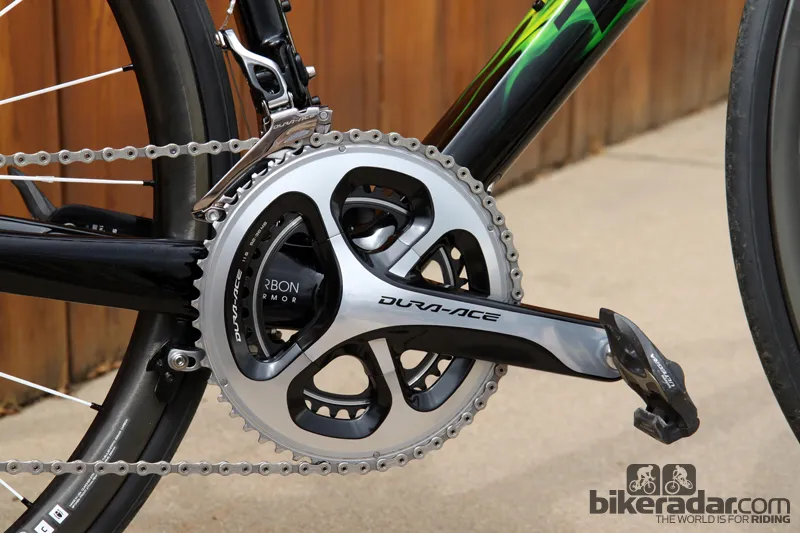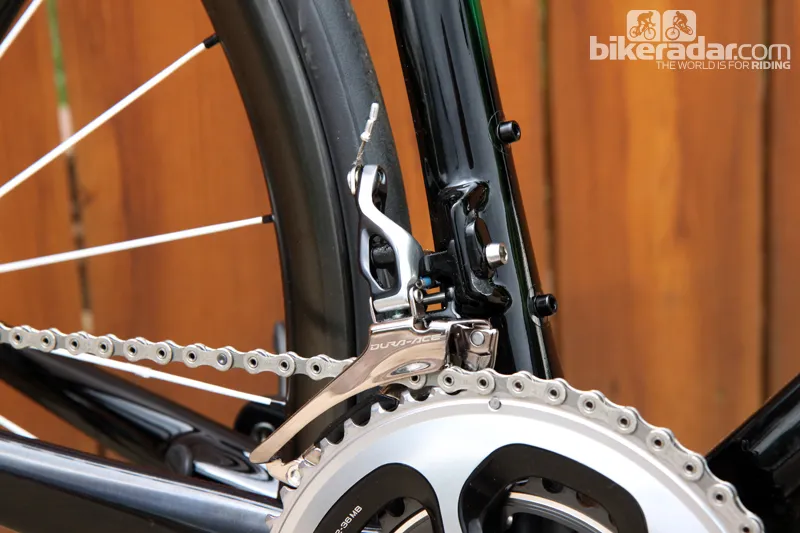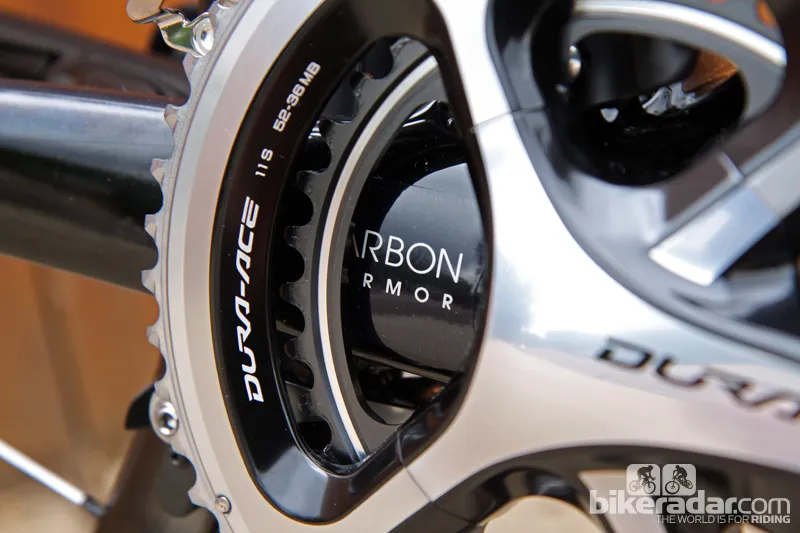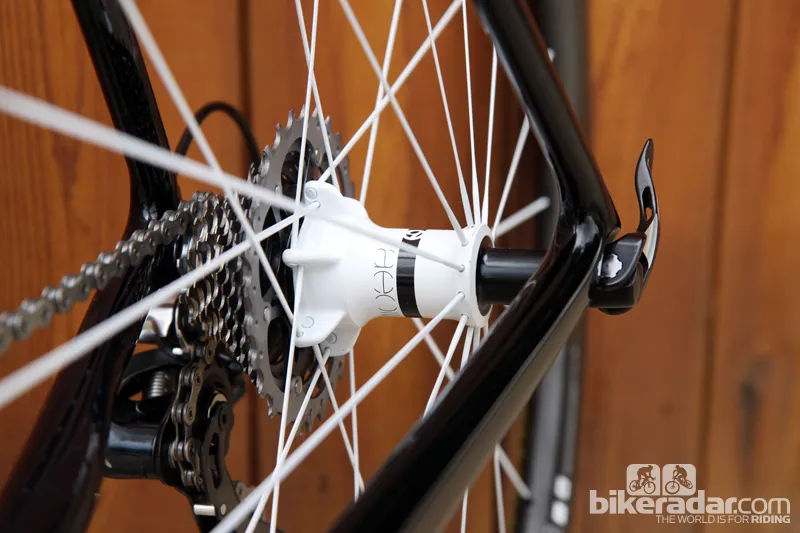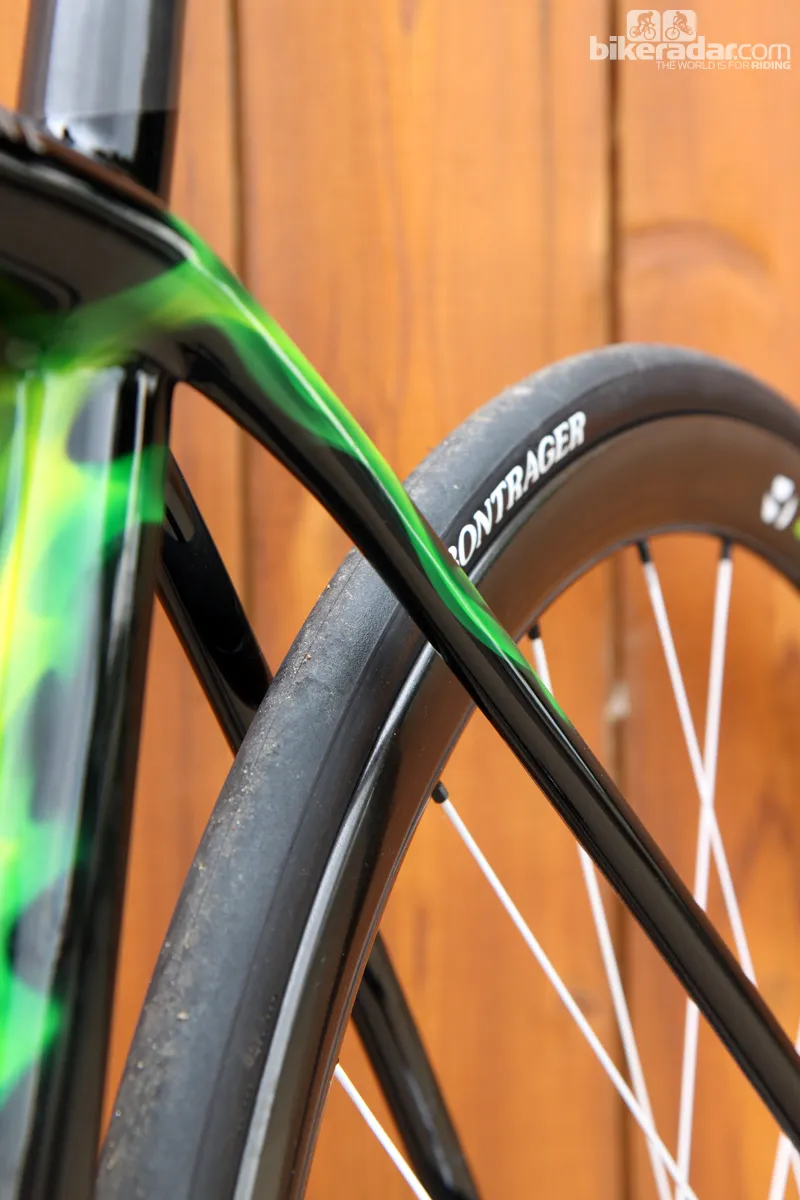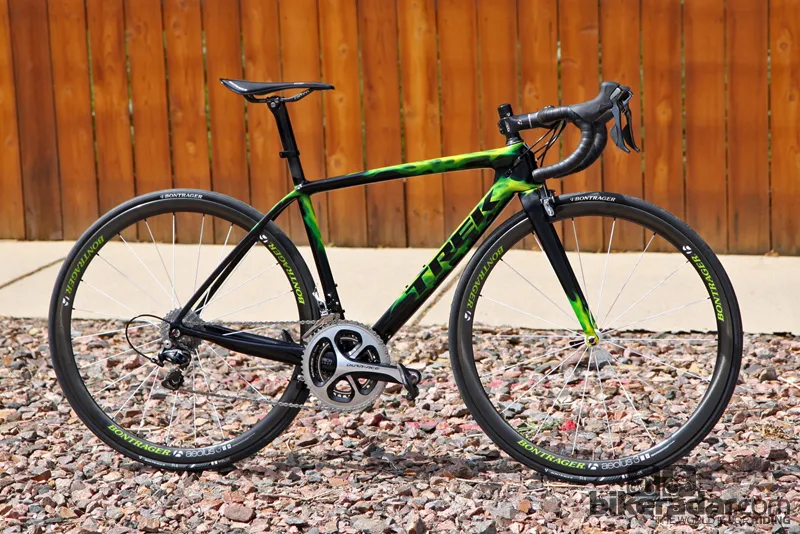Trek says the updated Madone 7-Series is more comfortable, offers better rear brake performance, and is lighter than ever before – supposedly down to just 725g for a 56cm sample finished in the company's ultra-svelte U5 Vapor Coat paint scheme. We haven't had a chance to tear our sample down to check the chassis weight yet, but our early rides suggest that the other two claims hold true.
- Pros: Brilliant handling, improved ride comfort, very light, good stiffness
- Cons: Rear brake rub, sloppy-fitting fork tips
Ride & handling: Smoother under fire
Ride quality has got better on this latest Madone, although it's a subtle improvement. Whereas the previous bike offered a reasonably firm but somewhat wooden feel, this edition has a little more blood flowing through its veins, with a livelier and springier personality along with a little less jarring over bigger pavement imperfections – and that was obvious before we switched to 25mm tyres.
It's still no magic carpet, but we found the new Madone 7-Series a willing partner during a 5 1/2-hour day in the Dolomites. Four big passes – including 2,900m (9,540ft) of vertical gain – left us physically drained but far from beat-up.
Trek says the updated Madone's beefed-up chain stays lend a more solid foundation for the bottom bracket-located, direct-mount rear brake caliper. Truth be told, brake performance is undoubtedly improved over the Madone 6-Series we reviewed earlier this year.
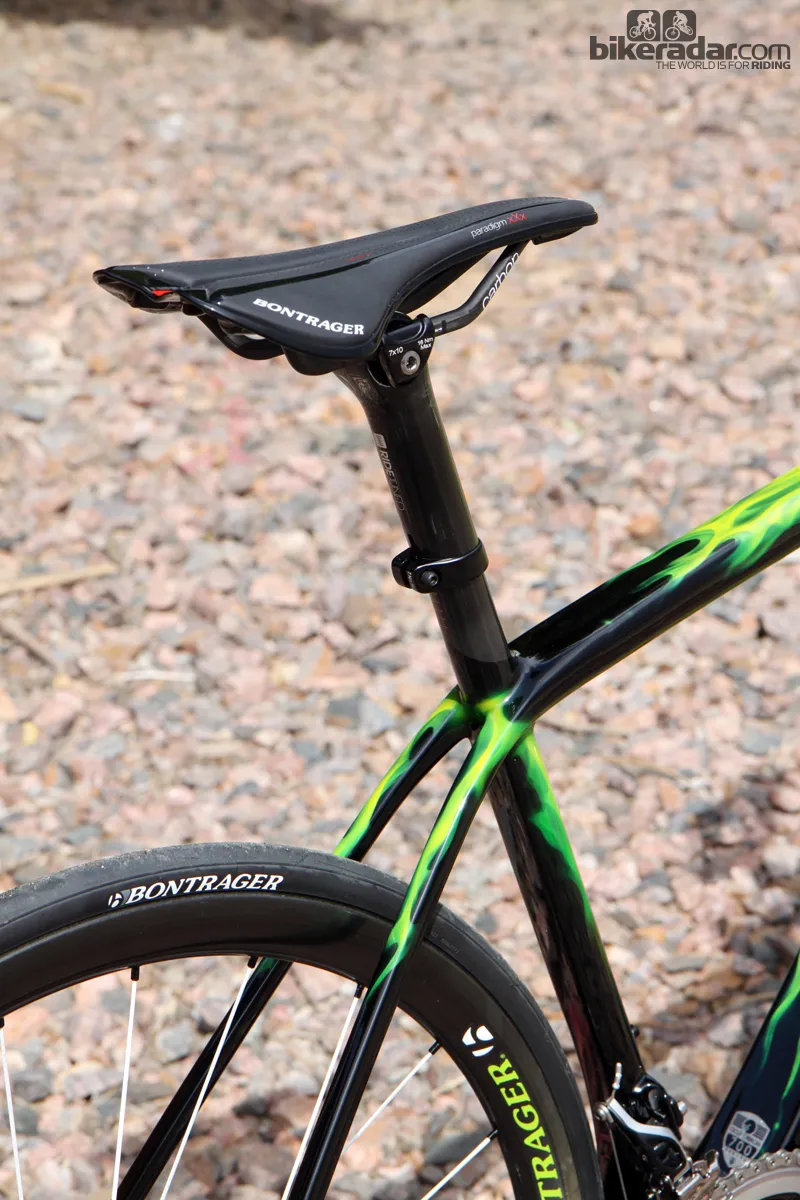
The bridgeless seat stays ride noticeably smoothly
However, we upgraded this time (via the Trek Project One customization program) to Shimano Dura-Ace calipers instead of Bontrager house-brand ones, so it's difficult – if not impossible – to isolate the effect of the new chain stay shape.
We noted some slight front brake rub when climbing out of the saddle on our 2013 Madone tester, and we're happy to report that there was no similar issue this time around.
That said, we did notice a substantial amount of rear brake rub, but only after switching to a set of very stiff, deep-section carbon fibre tubular wheels. We'll continue to investigate this issue as we delve further into testing, as it's not something we observed with the stock Bontrager Aeolus 3 D3 carbon clinchers supplied with our test bike.
The Dura-Ace setup actually works very well. There's ample power, excellent control, and a lighter and silkier lever feel where there was once far too much friction and sponginess. The rear caliper's location still makes it occasionally tricky to set up, but Trek at least seems to have tightened up the tolerances on the head tube-mounted housing stop, which incorporates an easy-to-use barrel adjuster and quick-release function.
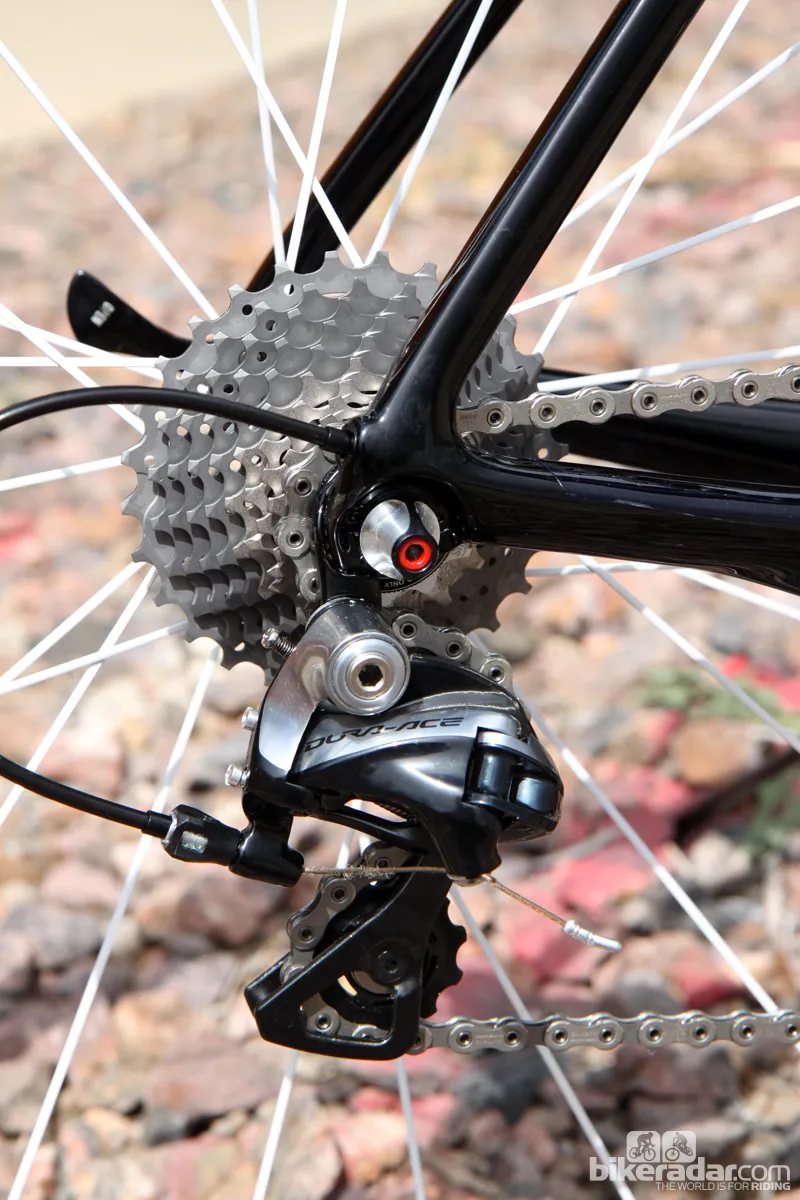
Dropouts are made of carbon fibre
Trek hasn't messed with the Madone much elsewhere and, for the most part, that's just fine. Overall stiffness still feels around the middle of the scale, with good snap under power and precise handling.
As we've frequently mentioned in the past, frame geometry feels spot on. The bike's confident high-speed stability had us comfortably rocketing down passes at 80kmh (50mph), while the solid front triangle and excellent braking let us scrub speed late before diving hard into tight downhill corners.
We went with the more aggressive H1 fit and felt right at home with just a handful of headset spacers, but riders looking for a more upright feel can simply go with the taller front end of the H2 variant.
Frame: A familiar formula
Trek madone 7 series - spartacus
Video: Trek Madone 7 Series Spartacus - another Project One customization that we tried
From a visual standpoint, there's very little to distinguish the 2014 Madone 7-Series from the 2013 edition. The driveside chain stay is noticeably bigger than before and now has a pronounced step as it approaches the dropout. The fork tips are now made of molded carbon fibre instead of aluminium, and that's about it.
Otherwise, it's familiar stuff, including truncated Kamm tail tube shaping throughout, a tapered 1 1/8in to 1 1/2in head tube, a 90mm-wide bottom bracket with molded-in bearing seats, and Trek's trademark no-cut semi-integrated seatmast.
Cable routing is once again internal and convertible between mechanical and electronic drivetrains, with similar entry and exit locations to last year – meaning we still wish the input stops up front were moved a little further back to create a smoother path when using very low and/or short stem setups. Trek seems to have refined the exit port for the rear brake, though, as the cable no longer drags on the aluminium housing stop.
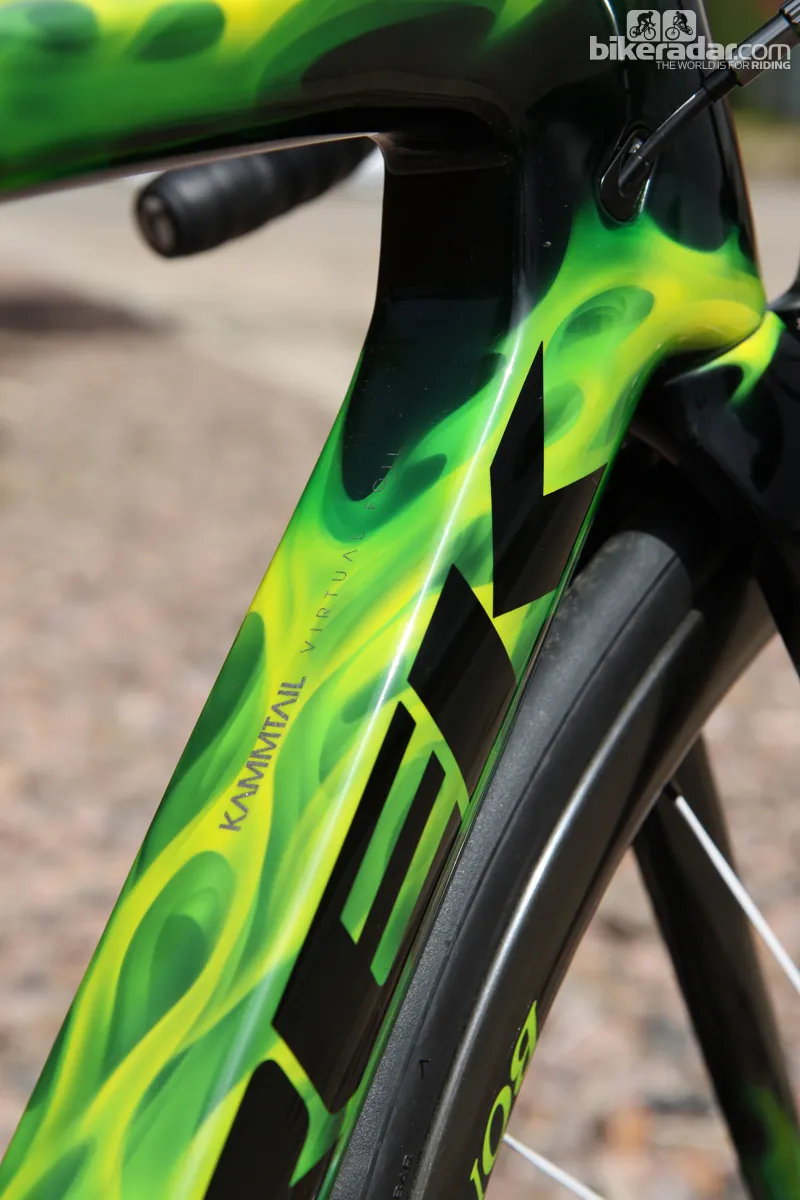
Our Real Fire paint job is hardly subtle
Finish quality on our custom painted Project One Real Fire frame was excellent, and particularly impressive given the size of Trek's operations.
Unfortunately, we weren't quite as impressed with the quality of those new carbon fibre fork tips. The fit is curiously sloppy around the axle and we struggled with wheel alignment throughout our first few weeks of testing. Our test bike is now back with Trek to be evaluated.
Equipment: Dura-Ace 9000 plus great wheels and finishing kit
We continue to be blown away by the latest Shimano Dura-Ace 9000 group – it's everything the previous 7900 should have been but wasn't. Shift quality both front and rear is silky smooth, with a light lever action and extremely precise movement that's highly reminiscent of the iconic 7800 generation. Front shifts are particularly good, with incredibly positive chain engagement. We still wouldn't mind shorter lever throws but, aside from that, the shifting is virtually flawless.
Critics are quick to discount the new direct brake mount, but now that we've been able to sample a setup with high-quality calipers, there's not much to complain about. It's certainly tidier (up front, at least, in this case), as the arms are offset less from the supporting structure to which they're bolted. There's less flex under very hard braking, too.
Details aside, the most important thing to note is that the brakes work exceptionally well. In addition to the power and modulation comments we made earlier, lever feel is fantastic – even with the somewhat squashy carbon-specific Bontrager cork brake pads.
Speaking of Trek's house brand, the rest of the Bontrager bits on our test bike have been excellent so far – as one would hope considering we hand-picked each one through the Project One custom program.

The chain stay has a pocket for Bontrager's DuoTrap wireless speed and cadence sensor
The molded carbon fibre Race XXX Lite stem is rigid and light, but it's the Race X Lite IsoZone carbon handlebar that's really impressive, with its relatively thin foam pads that sit in slight recesses on the tops up to the hoods and on the drops. They don't add much in terms of girth but they're quite effective at quieting vibration. We'd even say it's almost the equivalent of switching from 23mm-wide tyres to 25s.
Though they're not cheap, the Aeolus 3 D3 carbon clinchers have been excellent all-rounders – both on this bike and in previous encounters. They're pretty light and quick to spin up, quite stiff and snappy, and have very good braking performance in dry conditions. They're quite stable in blustery conditions, too, although it would be nice if they were tubeless compatible.
The Bontrager Paradigm XXX Carbon saddle is utterly fantastic. The firm shell and high-density foam provide excellent support on long days, and the shape is supremely comfortable. We rolled the dice and set out on three days in the Dolomites without allowing sufficient time to get used to the thing; thankfully, we had no ill effects as a result.
